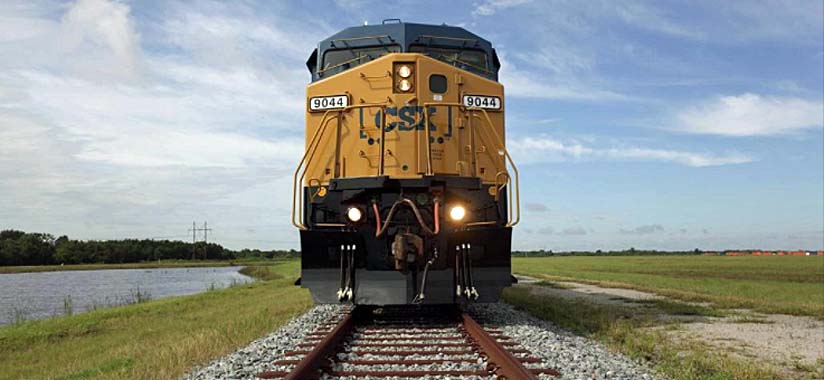
North America - In the weeks since the proposed acquisition, the four other Class I railroads have all sent filings to the Surface
Transportation Board (STB) about the merger and a 20-year-old waiver that would have allowed the Kansas City-based company to merge with another major railroad
under the regulatory guidelines that led to a spate of mergers and acquisitions in the 1990s.
Norfolk Southern, BNSF Railway, Union Pacific, and Canadian National objected to the waiver.
Jacksonville, Florida-based CSX (CSX) was the only Class I railroad that did not object to the waiver.
(Both Kansas City Southern and Canadian Pacific also are Class I railroads.)
CSX recently asked the Surface Transportation Board to consider its proposed purchase of Pan Am Railways a "minor" transaction, which would receive
less scrutiny.
The board disagreed.
In June 2001, the STB adopted rules that added rigor to major railroad consolidations.
In that ruling, KCS was granted a waiver that allowed the company to merge with another Class I railroad under the previous regulations.
At that time, KCS told the STB that merger regulations should preserve competitive rail options, enhance competition, and when necessary, preserve competitive
rail alternatives for shippers.
CSX wrote to the board that it intends to comment on the merits of the transaction at a later date.
For now, the railroad believed it behooved all parties to allow KCS to use the waiver.
"Successful consolidation proponents have traditionally met the public interest standard in the statute by demonstrating that the efficiencies expected to
result from their transaction, with reasonable mitigation of potential reductions in competition, would result in more competitive and efficient rail
transportation. The Applicants should have to do that here. To achieve that goal, however, there is no need to subject the Transaction to the uncertainties
associated with the 2001 Rules," CSX's attorneys wrote to the board.
Railroad economist Jim Blaze said that when it comes to the primary East Coast railroads, Norfolk Southern may be more stung by the proposed merger than CSX
because the former has a line that goes into Kansas City.
"KCS and CP are so small in network now that we're not talking about globs of traffic that is going to get shifted and diverted. We're talking about minor
flows over certain selective lanes," Blaze said.
Blaze added that BNSF, which has lines throughout the West and Midwest, could lose traffic under a CP/KCS merger.
Nick Little, managing director of the railway management program at Michigan State University, agreed that the proposed merger would have a tangential impact
on CSX.
"If there was going to be a merger that had a minimal impact, this would be the one. The two routes that CP and KCS have, they really don't duplicate each
other. They interchange at one point in Kansas City. It gives CP the same sort of advantage as CN has in that they have access to both coasts and with the Gulf
of Mexico. That means they have a really good opportunity to have one company to consignments in a given area," Little said.
KCS ranks number 40 on the Kansas City Business Journal's Private-Sector Employers List, with 762 local full-time-equivalent employees.
The company also ranked as the area's eighth-largest public company by revenue in 2019.
Will Brown.
(because there was no image with original article)
(usually because it's been seen before)
provisions in Section 29 of the Canadian
Copyright Modernization Act.

